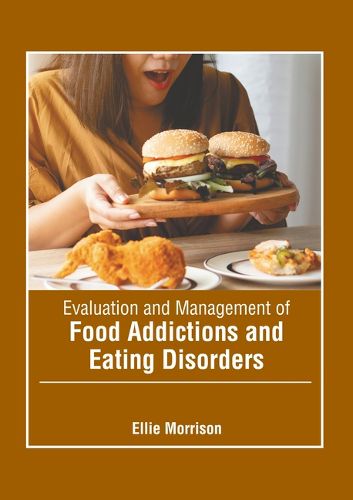Readings Newsletter
Become a Readings Member to make your shopping experience even easier.
Sign in or sign up for free!
You’re not far away from qualifying for FREE standard shipping within Australia
You’ve qualified for FREE standard shipping within Australia
The cart is loading…






An eating disorder refers to a mental disorder that involves abnormal eating behaviors resulting in a negative impact on physical and mental health. Food addiction is an eating disorder, where a person eats uncontrollably and compulsively without having hunger. There are other types of eating disorders, including bulimia nervosa, binge eating disorder, anorexia nervosa, and avoidant/ restrictive food intake disorder. A person may experience symptoms, such as mood swings, fatigue, frequent bathroom breaks after eating, and inexplicable weight changes. Evaluation of these disorders involves blood tests, physical examination and psychological evaluation for understanding eating beliefs and behaviors. Treatments for eating disorders vary according to the type and severity of the condition. Some common treatment methods are psychotherapy, Maudsley approach, nutrition counseling and medications. This book provides significant insights into the evaluation and management of food addictions and eating disorders. A number of latest researches have been included to keep the readers up-to-date with the global concepts in this area of study. This book will prove immensely beneficial to medical students, mental health professionals, and nutritionists.
$9.00 standard shipping within Australia
FREE standard shipping within Australia for orders over $100.00
Express & International shipping calculated at checkout
An eating disorder refers to a mental disorder that involves abnormal eating behaviors resulting in a negative impact on physical and mental health. Food addiction is an eating disorder, where a person eats uncontrollably and compulsively without having hunger. There are other types of eating disorders, including bulimia nervosa, binge eating disorder, anorexia nervosa, and avoidant/ restrictive food intake disorder. A person may experience symptoms, such as mood swings, fatigue, frequent bathroom breaks after eating, and inexplicable weight changes. Evaluation of these disorders involves blood tests, physical examination and psychological evaluation for understanding eating beliefs and behaviors. Treatments for eating disorders vary according to the type and severity of the condition. Some common treatment methods are psychotherapy, Maudsley approach, nutrition counseling and medications. This book provides significant insights into the evaluation and management of food addictions and eating disorders. A number of latest researches have been included to keep the readers up-to-date with the global concepts in this area of study. This book will prove immensely beneficial to medical students, mental health professionals, and nutritionists.